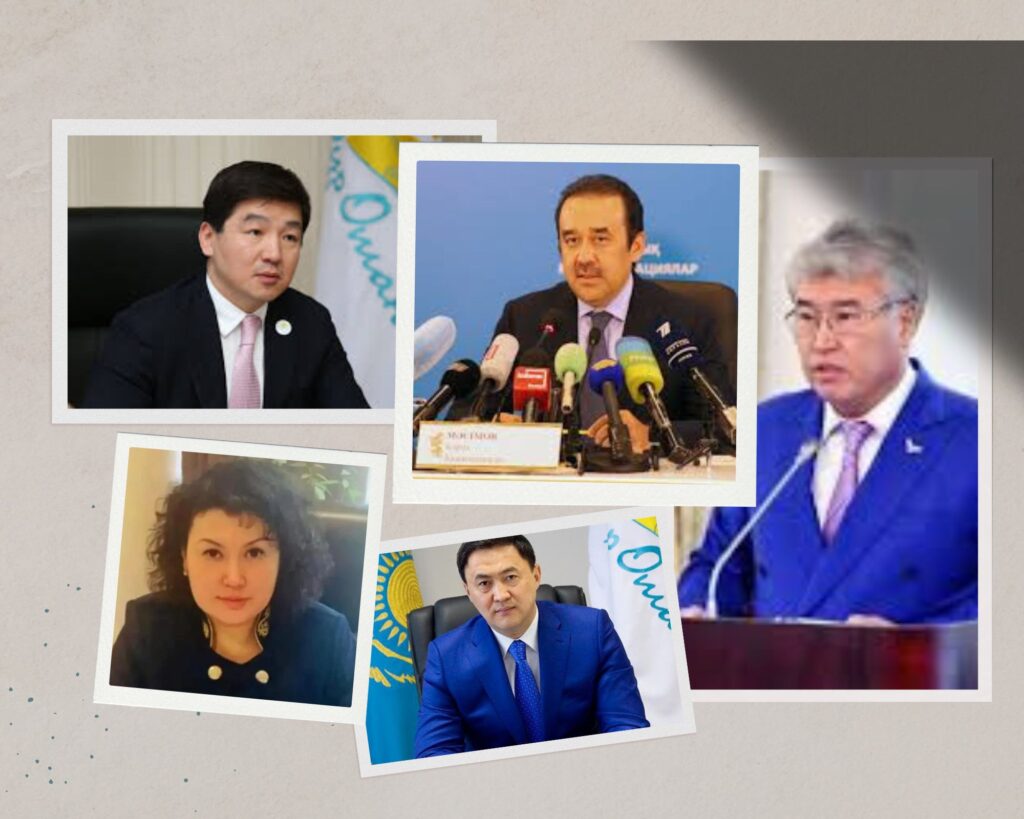Central Asian Countries are seeing a new wave of violence against women and girls, and the fight against their long-standing powerlessness is just beginning. In 2023, the Women, Peace and Security Index (WPS Index), published by the Georgetown Institute for Women, Peace and Security and the PRIO Centre on Gender, Peace and Security, found Kyrgyzstan and Uzbekistan the most dangerous countries in Central Asia for women. Things were deemed slightly better in Kazakhstan, Tajikistan, and Turkmenistan.
The challenges faced by women in the region result from a combination of factors: the low number of women in government and law enforcement, women’s lack of financial independence, especially in rural areas, a distorted understanding of traditions across populations, and a mentality in society that often denies or covers up flagrant cases of injustice.
The law is written in blood: the case of Kazakhstan
According to WPS experts, Kazakhstan has progressed further than its neighbors toward equality. Still, according to Kazakhstan’s Ministry of Internal Affairs, 69 women and seven children died in 2023 in domestic conflicts alone. It is believed that, on average, at least 80 women die every year at the hands of those they live with; every day, the police receive hundreds of calls, while thousands of women need the help of specialized protection and support centers. According to the Prosecutor General, last year 150 women sustained severe injuries and 200 moderate injuries in marital conflicts, with another 4,000 suffering minor bruises.
This year, however, marked a turning point for Kazakhstani society – more and more women are recording videos with marks from beatings, posting the videos on social media, and calling on the police to punish their abusers. Even high-profile domestic abusers can now be exposed. The trigger for these changes was the trial of former Nazarbayev-era Minister of the National Economy, Kuandyk Bishimbayev, who beat his wife, Saltanat Nukenova, to death last November. Following a live-streamed trial, this May, Bishimbayev was sentenced to 24 years in prison for her murder.
Even during the Bishimbayev trial, Karina Mamash, the wife of a Kazakh diplomat in the UAE, went public with allegations about systematic abuse, calling on the state to help. The Ministry of Foreign Affairs urgently recalled her husband, Embassy Counselor Saken Mamash, who may be fired. Karina is now at home with her children while a criminal case has been opened against her husband. She has since reported threats from her husband’s relatives.
Also in May, Akmaral Umbetkalieva, a resident of Atyrau, alleged that her ex-husband, Rinat Ibragimov – the akim (mayor) of Makat District in Atyrau Region – had beaten her for eleven years and taken away their children. Ibragimov called the allegations slander.
The month before, former Taldykorgan police chief, Marat Kushtybaev was sentenced to eleven years for raping a girl in his office in November 2023. Another headline from April was that a security guard at an Almaty bar who had been convicted of raping a girl at knifepoint would serve eight years in prison. The police, according to the victim, refused to investigate the case for a long time and gave in only under public pressure, even though the perpetrator had filmed the rape.
These tragedies are certainly not the first. In 2020, a man from the West Kazakhstan Region, Serik Kapazov, burned down the house where his ex-wife Zhadyra Zhumalieva was located, along with their two daughters, seven-year-old Inabat and nine-year-old Aisha. Kapazov received a life sentence. And in 2015, a man poured gasoline on and set fire to his ex-wife, the mother of four children, teacher Svetlana Saduova. She died in the hospital, while her murderer received a sentence of 18 years.
The case of the murder of lawyer Ayman Asanova in Almaty is considered one of the victories of social activists and concerned citizens. In 2022, her ex-husband stabbed her 18 times, killing her, after which a court sentenced him to just a year and a half in prison. The unjustifiably lenient sentence sparked massive outrage on social media. Eventually, the case was reviewed, and Asanova’s murderer received eleven years in prison.
The list goes on – dozens of similar stories can be cited about repeated, unpunished violence against women and children. Nevertheless, the situation in Kazakhstan is starting to change for the better. This spring, President Kassym-Jomart Tokayev signed amendments toughening punishment for rapists and domestic abusers. The amendments provide more opportunities to initiate criminal cases and protect victims. The United Nations Development Programme (UNDP) in Kazakhstan called these “legislative initiatives protecting women’s [and] children’s rights [a] crucial step towards equality, justice [and] safety for all citizens” that “lay a foundation for a stable, prosperous society.” On Instagram, the OSCE Programme Office in Astana stated that it “welcomes the adoption and signing of two laws aimed at ensuring and protecting the rights of women and children, including the criminalization of violence towards them.”
In addition, special women’s police units are being created. Experts believe that a shift in the situation of violence against women will depend on how these initiatives are realized in practice.
He cut off her nose and ears: the cases of Uzbekistan and Kyrgyzstan
The situation of women in Uzbekistan also remains difficult and even alarming. According to surveys, more than 43% of women have experienced domestic violence. UNICEF says that 87% of cases of violence against women in Uzbekistan are committed in the family; often, these incidents are not recorded. Yet the country started talking about domestic violence only a few years ago. Some analysts attribute this to the appearance of Shavkat Mirziyoyev as president, since when amendments to the legislation on the protection of the rights and freedoms of women and children have been implemented. Nevertheless, legislative measures against abusers still need to be modernized and, most importantly, properly applied.
In 2022, a video went viral from a wedding in Uzbekistan where the groom was hitting the bride. The couple reportedly reconciled, as it is not customary in the country to go public with cases of domestic violence.
“Impunity is the result of silence,” Saida Mirziyoyeva, the eldest daughter of the Uzbekistani president and the deputy chair of a public fund for the support and development of the national mass media, said on Telegram a few years ago. “She threw herself under a train with her daughters because she could not give birth to a boy. She hanged herself because of the abuse. She was beaten up over five thousand som (0,5$) that she had dared to borrow from neighbors to go somewhere. The abuse of the girl went unpunished – she found no protection from the rapists. This kind of news makes me sick. And these are just cases that we know about. How many remain in the shadows?” Mirziyoyeva asked.
In Kyrgyzstan, meanwhile, for many years there has been legislation in place to guard against and protect women from domestic violence. It contains such progressive norms for Central Asia as restraining orders. But activists from Human Rights Watch argue that the law is almost impossible to apply, and abusers are getting off scot-free.
In 2023, a particularly brutal case of domestic violence occurred in the Kyrgyzstani village of Selektsionnoye, Sokuluk District. A man stalked his ex-wife for several years before breaking into her apartment, beating her, stabbing her with a knife, and cutting off her nose and ears. The couple had two minor children, one of whom was home when his mother was attacked.
Overall, human rights activists report many incidents of domestic violence that end in murder or suicide. Indeed, some activists believe Kyrgyzstan may be experiencing an epidemic of femicide – the killing of women by men motivated by gender hatred and discrimination.









